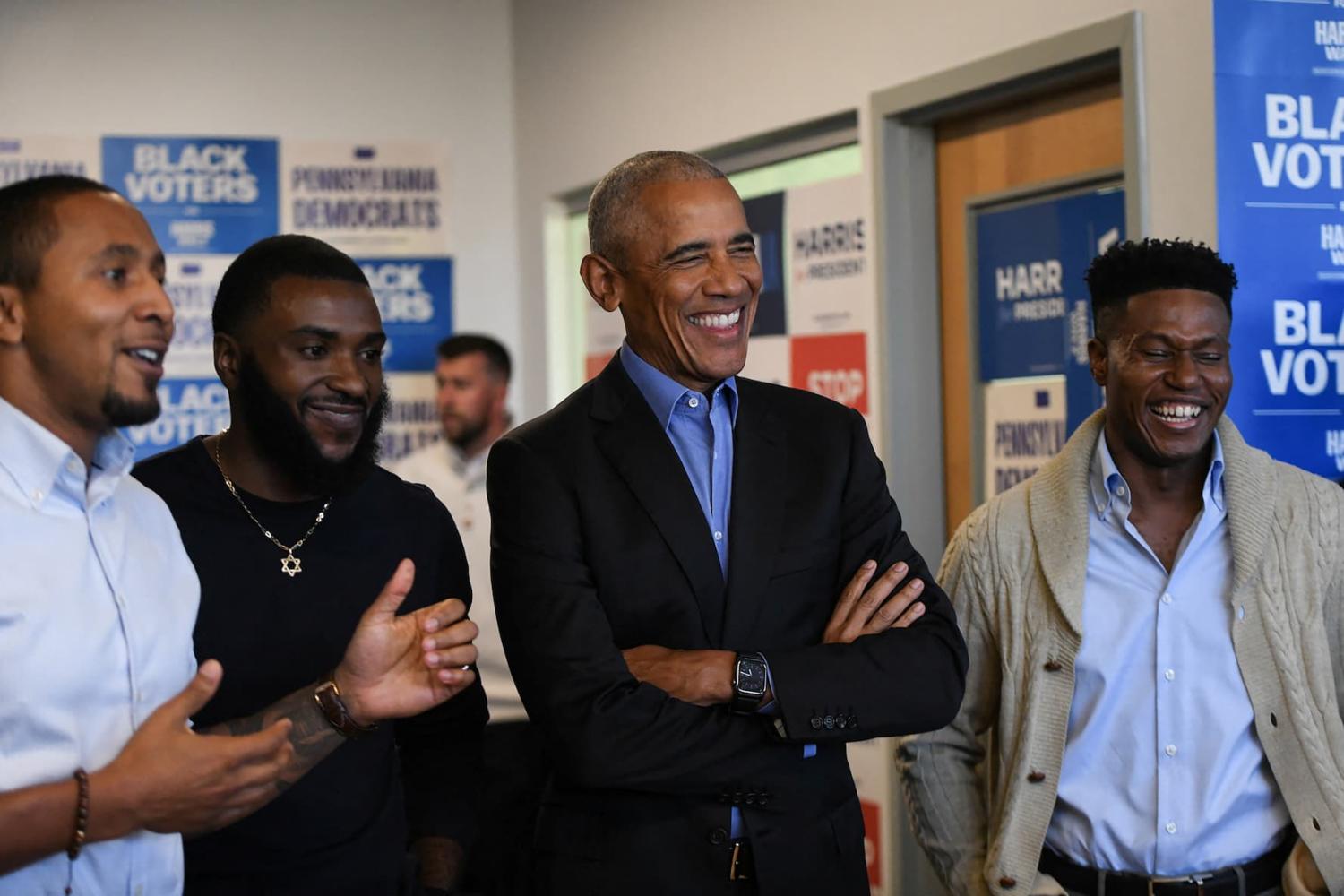(ThyBlackMan.com) Back in 2011, then-President Barack Obama delivered a speech to the Congressional Black Caucus, which had become increasingly critical of him in his second term. In particular, the CBC was urging the president to do more for African Americans, whose unemployment level stood at nearly 17%. At the end of his speech, Obama said the following:
“I expect all of you to march with me and press on. Take off your bedroom slippers, put on your marching shoes. Shake it off! Stop complainin’! Stop grumblin’! Stop cryin’! We are going to press on. We’ve got work to do, CBC!”
While the speech may have ignited applause among most CBC members, it kindled a different kind of fire among many in the broader African American community — one of dismay and disapproval. Writer Charing Ball offered this perspective: “Obama may as well have said, ‘Take off your head scarf and wave caps, put away the jug of Kool-Aid and grape drink, stop frying that chicken.’”

Ball’s critique encapsulates the sentiment well. Obama’s words unwittingly played into racist caricatures — stereotypes that have long been used to diminish and deride Black folks. Even stalwarts like Congresswoman Maxine Waters expressed discontent, suggesting that the tenor of Obama’s remarks was disrespectful. This episode reveals the complexity of America’s first Black president, especially as regards his interactions with the African American community.
I was reminded of this incident when Mr. Obama recently spoke at Vice President Kamala Harris’ campaign office in Pittsburgh. In particular, he highlighted the fact that Ms. Harris appears not to be getting the same level of support from Black men that Obama and other Democratic nominees have enjoyed. He intoned:
“Part of it makes me think that, well, you just aren’t feeling the idea of having a woman as president, and you’re coming up with other alternatives or other reasons for that. You’re thinking about sitting out, or even supporting somebody who has a history of denigrating you?”
Here, again, Obama’s words seemed to chide rather than charm. This isn’t to suggest that sexism is non-existent among Black men; clearly, that is not the case. However, the notion that sexism is somehow more rampant among Black men than it is among other men — and that it is the reason why she isn’t doing as well among that group — is problematic.
Obama patronizing African Americans raises poignant questions about the expectations and burdens that are placed on Black leaders toward their own communities. Why does Obama’s rhetoric towards us seem to be tinged with a scolding tone — in stark contrast to his empathetic approach that he often showcases in other public addresses? His presidency undeniably marked the zenith of political achievement for African Americans, yet his critiques sometimes give the impression of a highly successful but somewhat out-of-touch leader. Obama’s wealth and power sometimes seem to obviate his ability to connect with those who love him most.
Mr. Obama never has — and likely never will — speak to white people in this manner. Similarly, he never seems to have directed such stern rhetoric toward other demographic groups. This includes the Hispanic Caucus, which (like the CBC) urged more decisive action regarding their issues. Still, African Americans generally gave, and continue to give, Obama a “pass.” This seems reasonable in comparison to those who support Donald Trump, who sinks to a new moral low every other day.
I believe that President Obama, for whom I enthusiastically voted twice, did an excellent job as Consoler-In-Chief. His empathy shined through. However, I greatly dislike his role as Scolder-in-Chief because his harshest criticisms seemed to be aimed solely at Black people. This leads to another issue, namely African Americans’ relationship with the Democratic Party in general.
In Greek mythology, Scylla and Charybdis — two horrible monsters — threatened sailors in the Strait of Messina. Thus, the phrase “caught between Scylla and Charybdis” became a metaphor regarding having to choose between two less-than-optimal choices. In this case, Black folks have to choose between a party that takes us for granted versus one that actively disregards our interests. The other options are to select a third party or simply not to vote. For me, neither of those is acceptable.
This dilemma underscores a broader existential and political crisis within the Democratic party: How to genuinely engage with a foundational, yet increasingly disillusioned, segment of its base. Indeed, we are the most important segment of the Democratic Party’s base.
Of course, it is crucial to emphasize that, if Vice President Harris loses this election, it will not be because of Black men. It will be because of white women, who vastly outnumber us. To this end, the Democratic Party seems to have staked its case on reproductive rights, almost to the exclusion of other issues. We’ll soon see how that strategy works out.
In the end, the solutions to the problems within the Democratic party are in its hands. It would be exceedingly foolish to lay the blame at Black folks’ feet.
Written by Larry Smith
















Leave a Reply